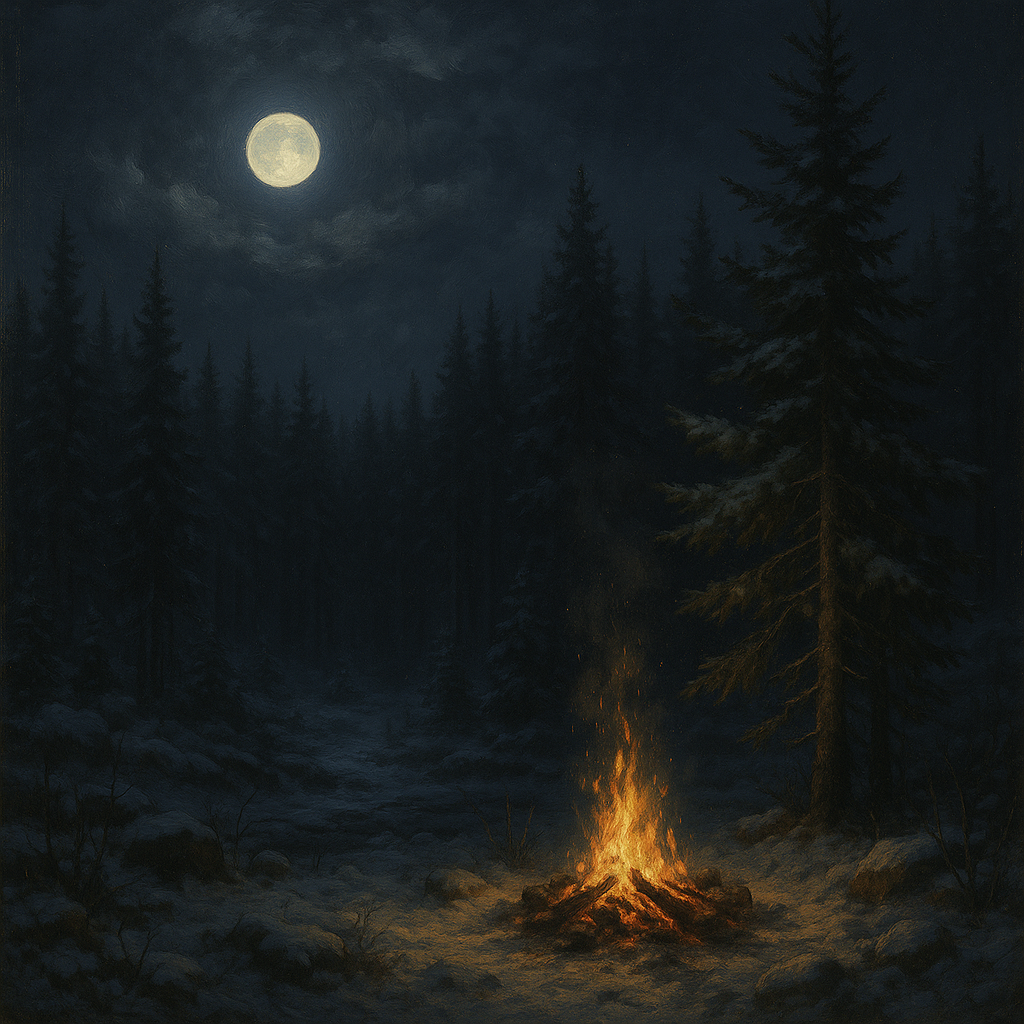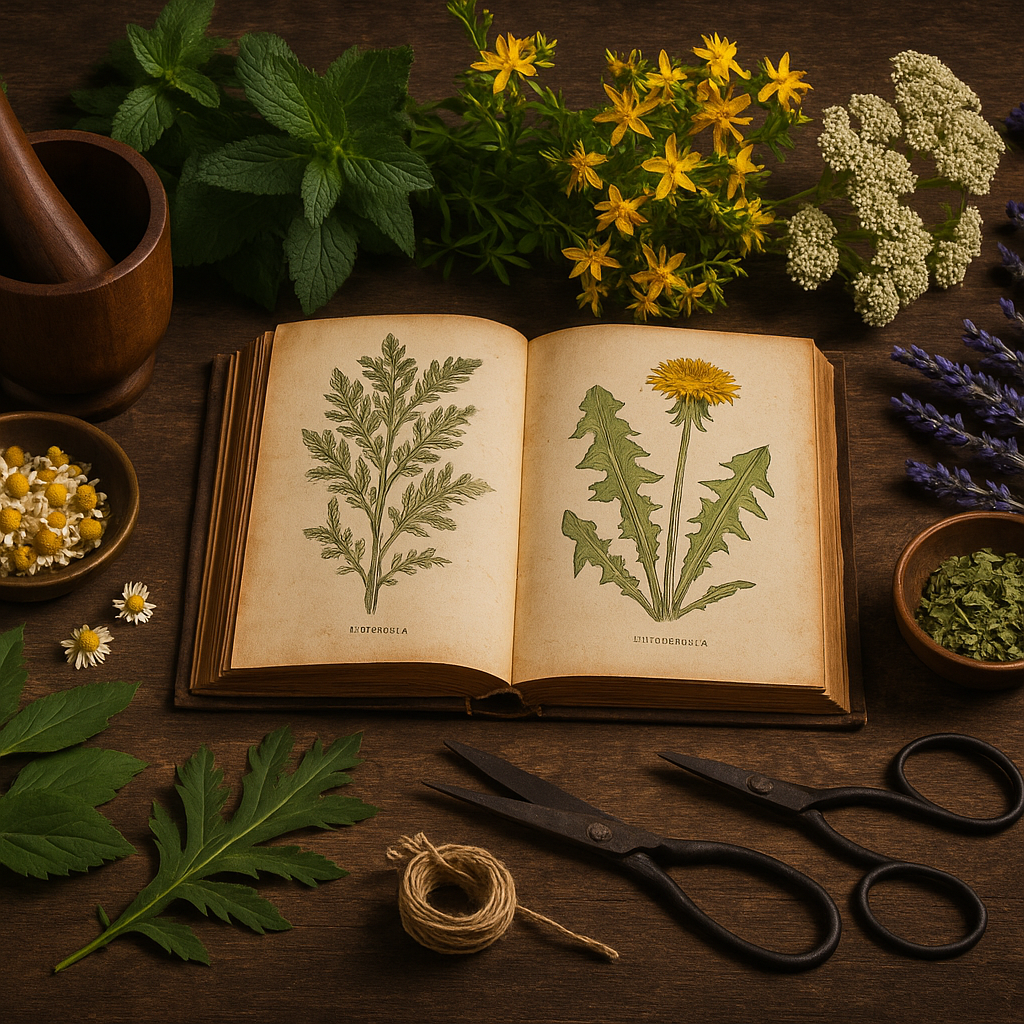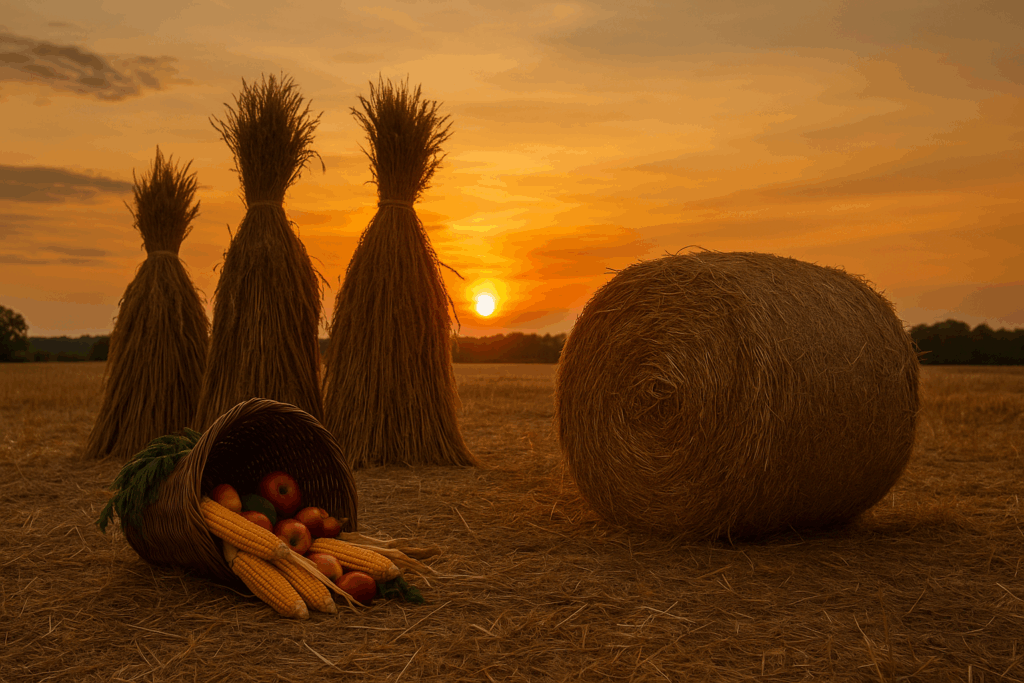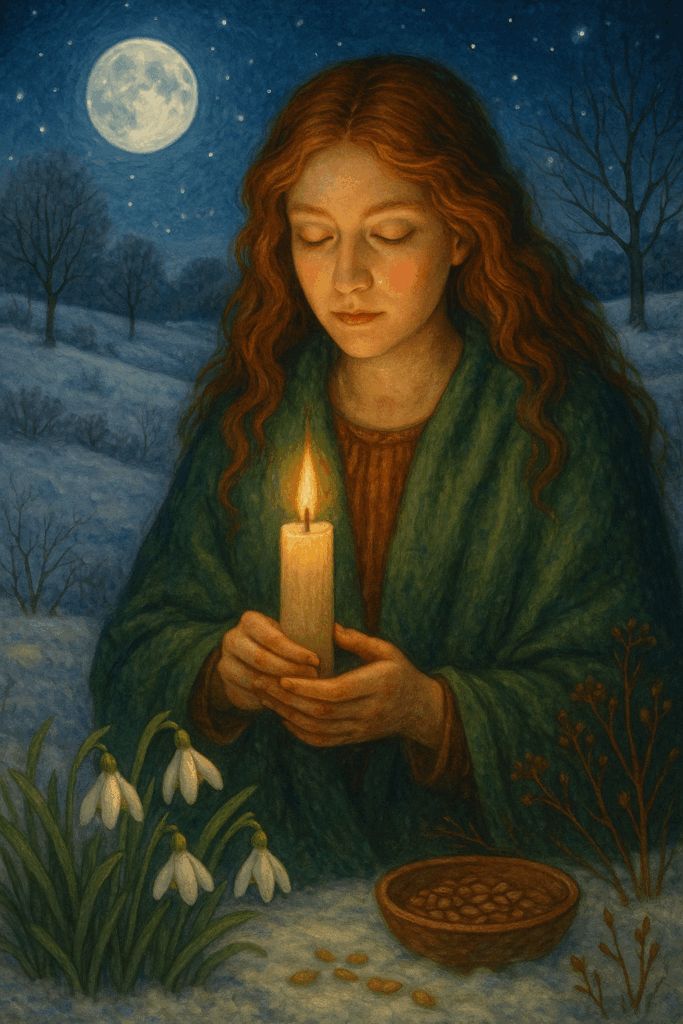🌑 November 12 – The Last Harvest of Herbs

Collecting and blessing herbs before the frost for winter magic.
The mornings now are heavy with breath and mist, the fields glistening with the crystalline touch of frost. Each day the sun rises lower, its light a pale echo of summer’s fire. The earth begins to turn inward, drawing her warmth down into her roots, preparing for her long sleep beneath the blanket of winter. Yet before that sleep deepens, she offers one last gift — the herbs that still cling to life in the cool soil, aromatic and wise, carrying the concentrated memory of sunlight. November 12 is The Last Harvest of Herbs, a day of gathering and gratitude, when we collect the remnants of green and bless them for the long season ahead.
This day stands at the threshold between the growing world and the dreaming one. It is the final moment to gather what remains before frost claims the fields and the gardens. For centuries, wise women, healers, and herbalists marked this time with reverence. The herbs of late autumn were considered potent beyond measure — strengthened by their struggle against the cold, purified by the first frosts, and infused with the endurance of the earth herself. These were the herbs of the dark season, used not only for healing the body but for tending the spirit through the long months of shadow.
To gather herbs now is not merely an act of practicality; it is a sacred exchange between human and land. One must ask permission before cutting the last sprigs, for these plants have endured much to reach this moment. Approach your garden, your forest, or even a small pot on your windowsill with respect. Touch the leaves gently, breathe in their scent, and feel the pulse of life still moving through them. Whisper your gratitude before harvesting: “Thank you for your strength, for your gift, for carrying the sun’s fire into the dark.” Such simple words awaken a dialogue between you and the spirit of the green world.
Among the herbs gathered in this season are the stalwarts of protection and endurance — rosemary, sage, thyme, bay, juniper, and pine. These plants carry the vibration of strength, clarity, and preservation. Rosemary, evergreen in both color and energy, keeps memory alive and wards against forgetfulness. Sage purifies spaces and souls alike, transforming heaviness into clarity. Thyme, humble and fragrant, offers courage to the weary heart. Bay leaves hold the power of prophecy and renewal, a reminder that vision persists even through winter’s sleep. Juniper and pine, resinous and sharp, connect us to the breath of the forest and the guardianship of evergreen spirits. To gather these herbs is to gather blessings — fragments of the summer that sustain us through the frost.
Once gathered, the herbs are to be blessed before storage or use. This ritual need not be elaborate. Lay them out upon a clean cloth in the sunlight, or if the day is dim, before the glow of a candle. Pass your hands above them in slow circles, feeling the energy rise like gentle warmth. Speak a blessing in your own words, or whisper something ancient: “From earth to air, from fire to water, I bless these gifts of the season. May their spirit endure, may their healing remain, may their wisdom guide us through the dark.” You may sprinkle them lightly with saltwater or smoke them gently with incense to seal the intention. Each motion becomes a prayer, each breath a thank-you.
After blessing, you can hang the herbs in small bundles to dry, store them in jars, or craft them into charms and sachets. A sprig of rosemary above the door invites protection; a pouch of thyme beneath the pillow encourages peaceful dreams; a pinch of sage in the hearth fire purifies the home and honors the ancestors. These acts, though humble, weave magic into daily life — a reminder that the sacred is never far from the ordinary. The herbs carry memory, and every time they are used, that memory blooms anew, releasing its fragrance like a whispered promise of renewal.
Spiritually, The Last Harvest of Herbs teaches the art of preservation — not only of plants but of wisdom. As we move into the dark months, what we have learned, gathered, and experienced throughout the year must be distilled into something we can carry. Just as herbs are dried to retain their essence, so too do we dry and store our insights, our moments of joy, our lessons hard-earned. We carry them inward, knowing that when the coldest days arrive, they will sustain the fire of spirit within us. This process of gathering and blessing is therefore both outer and inner harvest — the final gleaning of meaning before the long reflection of winter.
There is also a certain bittersweet beauty in this ritual. Each herb plucked is a reminder that the growing season is done, that life is retreating into mystery. Yet in that retreat lies profound grace. The earth does not grieve its own stillness; it trusts the cycle of return. When we gather herbs, we mirror that trust. We acknowledge the end without fear because we know it is part of a greater rhythm. The scent of rosemary and sage upon our fingers becomes a quiet covenant: what dies shall rise again, what sleeps shall wake, what we let go will one day return renewed.
In ancient herbal lore, the spirit of each plant was said to dwell not only in its leaves but in its fragrance. When we crush a leaf, we release that spirit, allowing it to mingle with our own breath. Thus, during this ritual, the air becomes a communion of worlds — the green world and the human, the material and the spiritual. The scent of herbs filling the home at this time of year is not mere perfume; it is invocation, protection, and remembrance. To breathe it in is to take in the wisdom of the earth herself, distilled into the simplest of forms.
You may also choose to create an herbal blessing wreath or charm to hang through the winter. Bind together sprigs of evergreen with late harvest herbs, whispering intentions into the weave. Such charms were once hung above doorways to guard against misfortune and to invite good health. As you tie each knot, speak a word of power — peace, strength, warmth, clarity. Each knot seals the energy, weaving your hope into form. When spring comes, the charm can be burned in gratitude, releasing its spirit back to the wind.
This day also carries an invitation to gratitude for the unseen alchemy of nature. Consider the patience of the herbs — how they grow quietly, season after season, offering themselves to the world without expectation. They teach generosity and resilience, qualities much needed as we enter the season of stillness. By harvesting them with awareness, we align ourselves with those same virtues. The herbalist’s work is not one of dominance over nature but of partnership, of understanding that the earth’s medicine is freely given to those who approach with humility.
As twilight falls, you might brew a cup of herbal tea from your harvest. Let it steep slowly, releasing its essence into the water like the final song of autumn. Sit in silence as you drink, feeling the warmth flow through you. Each sip is communion — with the land, with the season, with the countless hands that have performed this same ritual across centuries. Offer the last drop back to the earth in thanks.
When frost comes heavy the next morning, you will feel its sting differently — not as loss, but as fulfillment. You have gathered what was needed, blessed it, and offered it forward. The green world rests, and so may you. The Last Harvest of Herbs teaches that even in endings there is abundance, and that gratitude is the truest form of magic.



